Introduction
Introduction
Imagine that every time your mother sees you, she repeatedly asks, “What was your name?” or your father forgets where he placed his keys or even why he entered a room. Alzheimer’s is not a disease that arrives overnight; it quietly and gradually enters and turns life upside down. But the question is: Is there anything we can do to prevent it from ever happening?
In a world where everything has gone digital, researchers have been exploring the question of whether a mobile app and an online health coach can help prevent Alzheimer’s disease.
One of the most important studies in this area was conducted by Dr. Michelle Gray, a distinguished professor at the University of Arkansas in the United States. Dr. Gray, an expert in resistance training and aging, designed a two-year project in collaboration with a team of specialists in sports sciences, neurology, psychology, and digital health. The aim of the project is to examine the impact of online coaching and digital lifestyle education on reducing the risk of Alzheimer’s disease in middle-aged individuals.
In the following article, we will review the complete details of this study, its preliminary results, and interesting findings. We will also explore whether it is truly possible to save our memory from risk with just a few clicks a day.
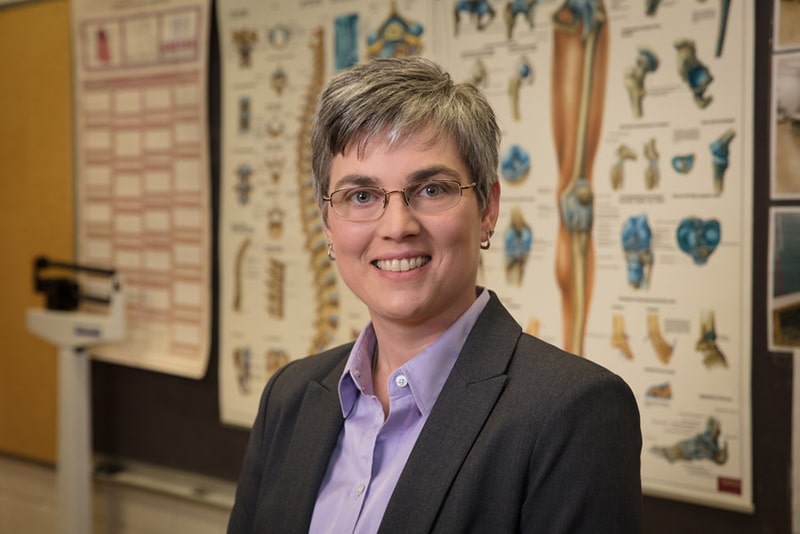
What is Alzheimer's?
Before delving into the details of the study, let’s briefly understand what Alzheimer’s is.
Alzheimer’s is a progressive brain disease that gradually robs an individual of memory, cognitive abilities, and the capacity to perform daily tasks. It is the most common form of dementia and typically appears in individuals over the age of 65. Early symptoms include short-term memory loss, confusion, repeated questions, and getting lost. As the disease progresses, the individual may even fail to recognize family members.
In the following article, we will review the complete details of this study, its preliminary results, and interesting findings. We will also explore whether it is truly possible to save our memory from risk with just a few clicks a day.
A simple definition of the study's topic.
What was this study exactly about?
The study conducted by Dr. Michelle Gray and her research team addresses a very important question:
Can the risk of Alzheimer’s in middle-aged individuals be reduced by using a digital health app and the support of an online coach?
To answer this question, the researchers designed a two-year clinical trial (RCT) with the following structure:
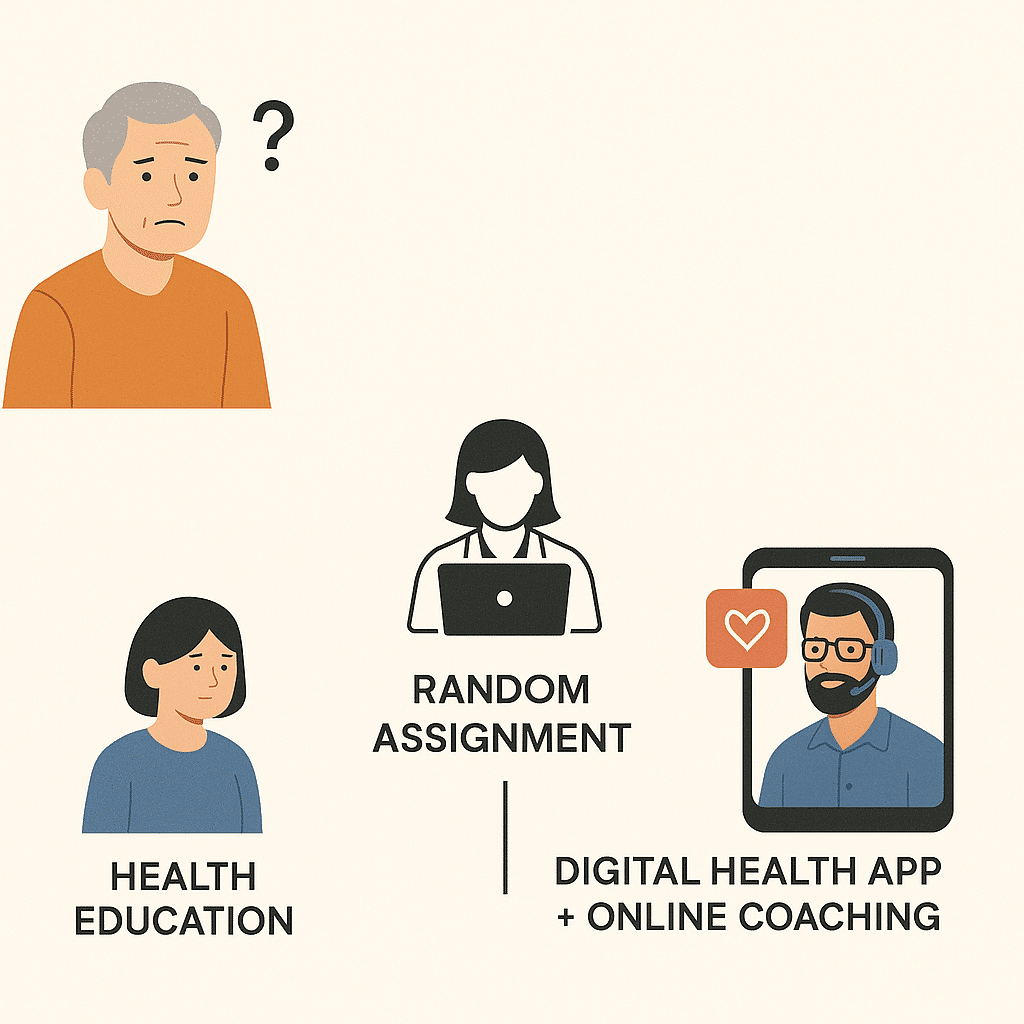
🔹 What was examined?
The effect of a multi-component digital intervention, including:
Healthy lifestyle education (nutrition, sleep, stress, physical activity)
Personal online coaching through an app
🔹 On whom?
204 volunteers, aged between 45 and 75 years, who had at least two modifiable risk factors for Alzheimer’s. These factors included issues such as physical inactivity, unhealthy diet, high blood pressure, type 2 diabetes, depression, insufficient sleep, and more.
🔹 How was it implemented?
The individuals were randomly divided into two groups:
The Health Education (HE) group: They received only digital education on healthy lifestyle practices.
The Health Coaching (HC) group: In addition to the education, they were regularly in contact with an online health coach who guided them in implementing behavioral changes.
🔹 What was the ultimate goal?
To assess whether this digital intervention can:
Improve cognitive function (memory, attention, processing speed)
Reduce biological factors associated with Alzheimer’s (such as blood lipids, blood sugar, inflammation)
And most importantly, reduce or stabilize the overall risk of developing Alzheimer’s.
Why is this study important for you and me?
You might be thinking to yourself, “I’m still healthy, why should I worry about Alzheimer’s?” The truth is, Alzheimer’s is not an overnight disease; it begins to progress in the brain years before its symptoms appear. And this is exactly why prevention should start in middle age, not when it’s too late.
Unlike in the past, when we thought the only thing we could do for Alzheimer’s was to “endure” it, research now shows that by making lifestyle changes—such as improving sleep, increasing physical activity, eating a healthy diet, and reducing stress—it’s possible to reduce the risk of the disease or slow its progression.
But how can we make these changes a reality? This is where a digital coach and an app can work wonders. No need for clinic visits, no high costs or time commitments. With just a few clicks a day and a little guidance, you can take a step towards protecting your memory.
This study shows that even individuals who are at home, with a smartphone and the motivation to change, can engage in the Alzheimer’s prevention process. This means that it is exactly something that can be implemented for our society as well.
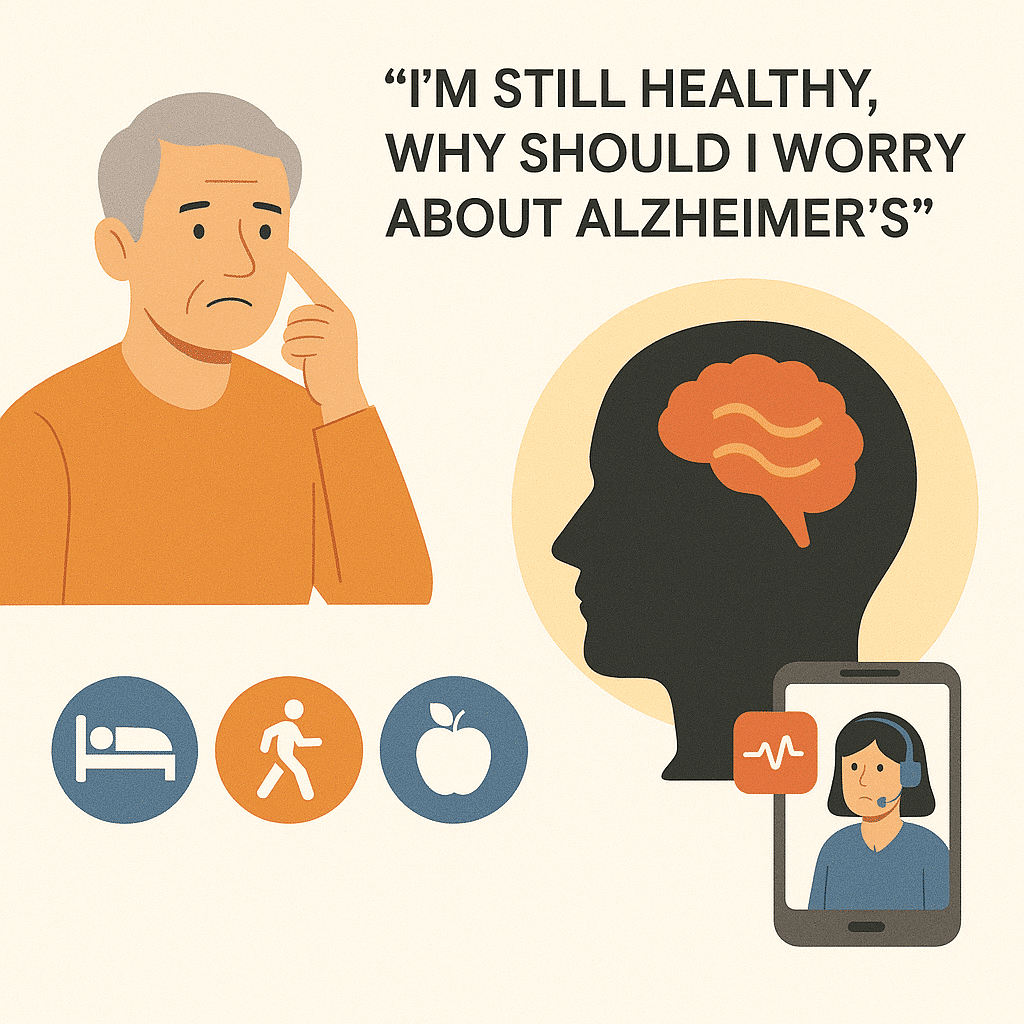
What results were obtained?
The study continued until 2023, and the preliminary results were published in a scientific preprint in April 2024. The findings revealed:
Both groups—those who received only digital education and those who had an online coach—showed improvement in cognitive performance (such as memory, attention, and processing speed).
The overall risk of Alzheimer’s was stabilized in both groups; meaning that the progression of the disease was either halted or reduced.
An interesting and important point was that in individuals over 65, the group with the online coach showed a significant and noticeable reduction in their Alzheimer’s risk score.
This finding may suggest that digital coaching is more effective for older individuals, possibly due to their greater need for support, follow-up, and personalized motivation.
In the next section, we will analyze these results and examine what these findings mean for the future of brain and memory care.
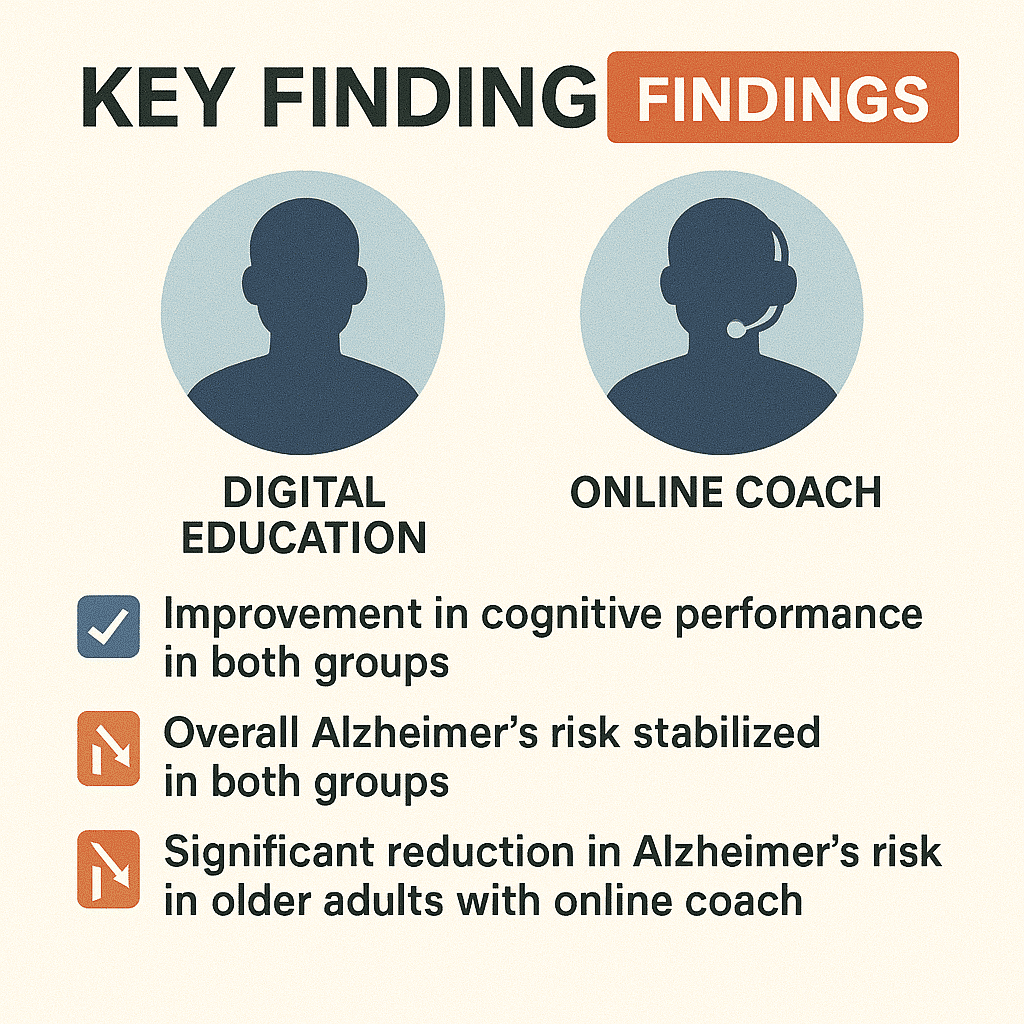
Analysis and Key Takeaways from the Results:
The findings of this study, although not yet officially published in scientific journals, indicate through preprints that even simple digital interventions can have a positive and significant impact on cognitive performance and the risk progression of Alzheimer’s.
🔹 Stabilizing the risk of Alzheimer’s is a success, as we are dealing with a disease that naturally worsens with age. Therefore, being able to prevent its progression is itself an important step.
🔹 Cognitive improvement in both groups indicates that even simple lifestyle education can be effective. However, what makes this study more unique is the role of online coaching in individuals over 65 years old; in other words, where there is a greater need for personalized support, human companionship—even through a phone—can have a more significant impact.
🔹 For the future of brain health care, the message is clear: We should no longer wait for Alzheimer’s symptoms to appear. Digital interventions are accessible, customizable, and cost-effective. This means that even in societies with limited access to specialized medical services (such as many cities and villages in Iran), programs inspired by this model can be implemented.
In simpler terms: If apps today can track our sleep patterns, daily steps, and heart rate, why can’t they also take care of our mind?
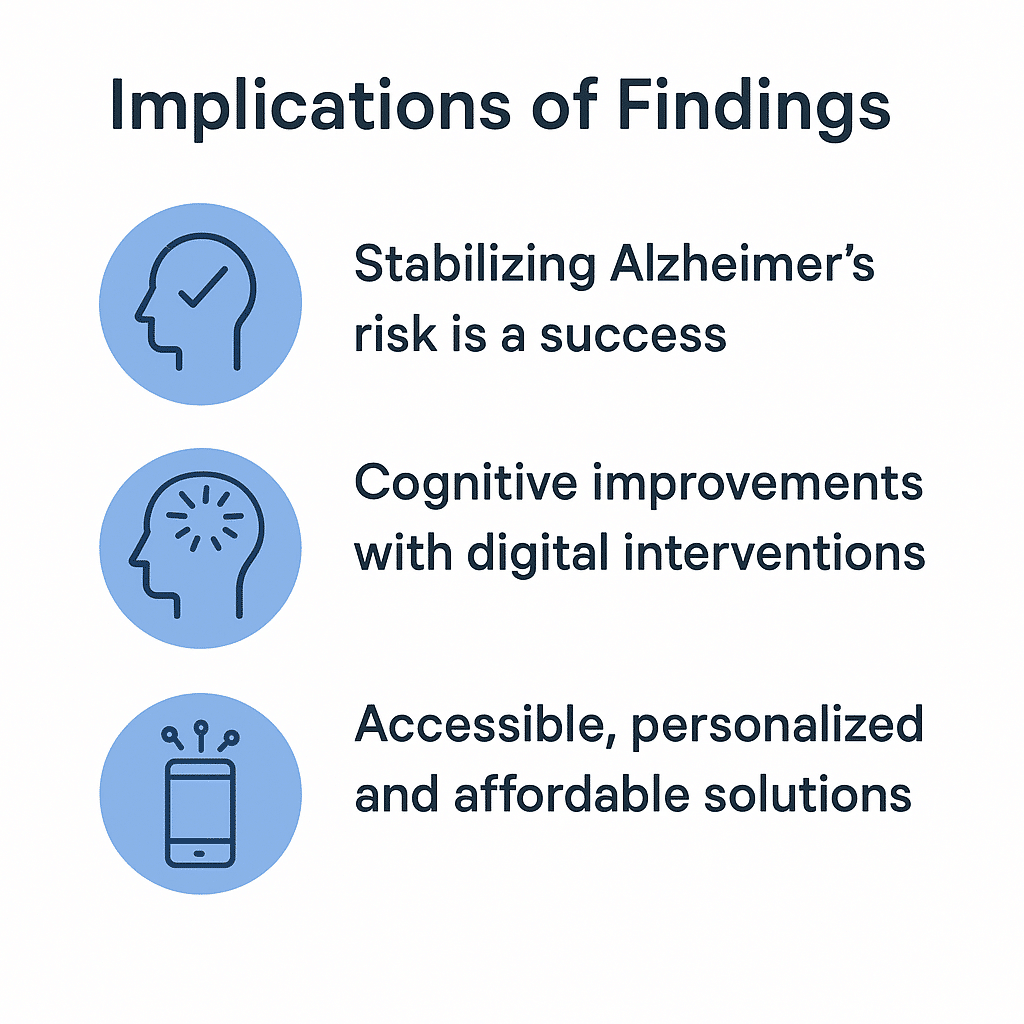
Final Summary: A Small Step, A Big Impact
This research shows us that the future of cognitive health is no longer limited to pharmacies and doctor’s offices; it can start from the screen of our phone. Digital health programs and online coaching can become powerful tools for preventing diseases like Alzheimer’s—tools that are accessible even at home.
If you or your loved ones are over 45 years old, now is the best time to start making a change. Even with a few simple steps in lifestyle, you can strengthen your mind, reduce the risk, and improve your quality of life.
On the Pelank Fitness platform, our effort is to simplify and make the latest scientific content accessible and actionable for the Persian and English-speaking community. If you wish to take steps in Alzheimer’s prevention, you can make use of our programs, guides, and coaches.
🧠 Take your memory seriously. Prevention can start today.
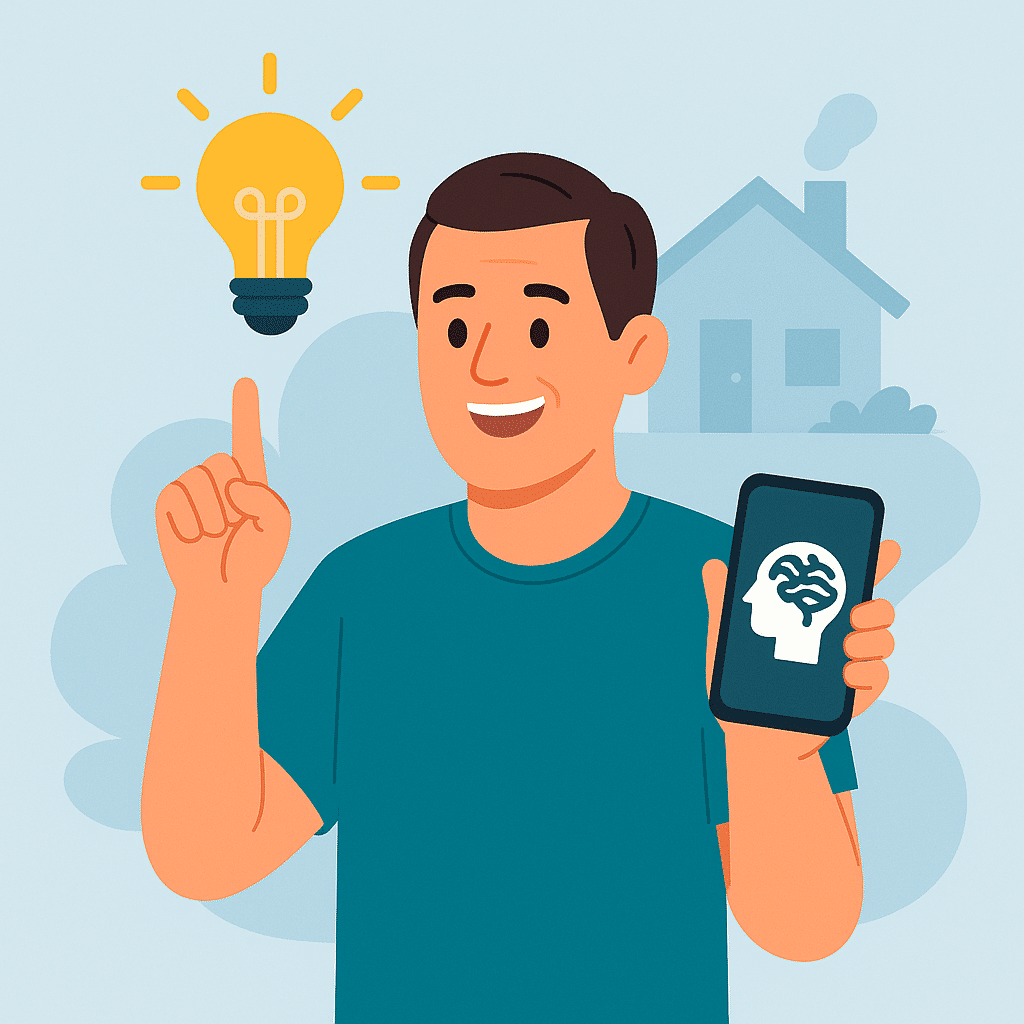
📚 References
📄 Original Article (Study Protocol):
Gray M, Rogers N, Waddell D, et al.
Intervention for a Digital, Cognitive, Multi-Domain Alzheimer Risk Velocity Study: Protocol for a Randomized Controlled Trial.
Published in: JMIR Research Protocols, 2022;11(2):e31841.
DOI: 10.2196/31841
📎 Direct Link to the Article:
https://www.researchprotocols.org/2022/2/e31841/
📊 Study Results (Preprint Published in April 2024):
Gray M, Rogers N, Christensen C, Waddell D, et al.
Digital 2-year multidomain health interventions improve cognition and stabilize Alzheimer’s disease risk in at-risk adults: DC-MARVEL – A Randomized Controlled Trial (Preprint).
📎 Direct Link to the Preprint File: Published on ResearchGate, April 2024.
https://www.researchgate.net/publication/379722798
👩🔬 Research Team (Based on the Authors of the Original Article):
| Researcher Name | Academic Degree | Institution/University | ORCID Link |
|---|---|---|---|
| Dr. Michelle Gray | PhD | University of Arkansas | ORCID |
| Erica N. Madero | MPH | Stanford | ORCID |
| Joshua L. Gills | MSc | University of Arkansas | ORCID |
| Dr. Sally Paulson | PhD | University of Arkansas | ORCID |
| Megan D. Jones | MSc | University of Arkansas | ORCID |
| Anthony Campitelli | MSc | University of Arkansas | ORCID |
| Dr. Jennifer Myers | PhD | Stanford | ORCID |
| Dr. Nicholas T. Bott | PsyD | Stanford University | ORCID |
| Dr. Jordan M. Glenn | PhD | Stanford | ORCID |
Source of Data: Study Protocol and Preprint DC-MARVEL (JMIR Research Protocols / ResearchGate).
⚙️ Tools and Resources Used in the Study:
ANU-ADRI (Australian National University Alzheimer’s Disease Risk Index):
https://anuadri.anu.edu.auRBANS (Repeatable Battery for the Assessment of Neuropsychological Status):
Standard Cognitive Assessment Test | Product DescriptionNeurotrack Digital Cognitive Assessment:
An online cognitive assessment tool used in the study
https://www.neurotrack.com
🌐 Databases Used:
Pelank Life | Body Health Assessment
The Best Body Health Calculators Using Scientific Methods
Developed by Pelank Life ©